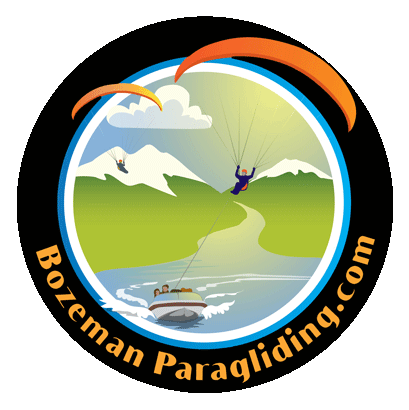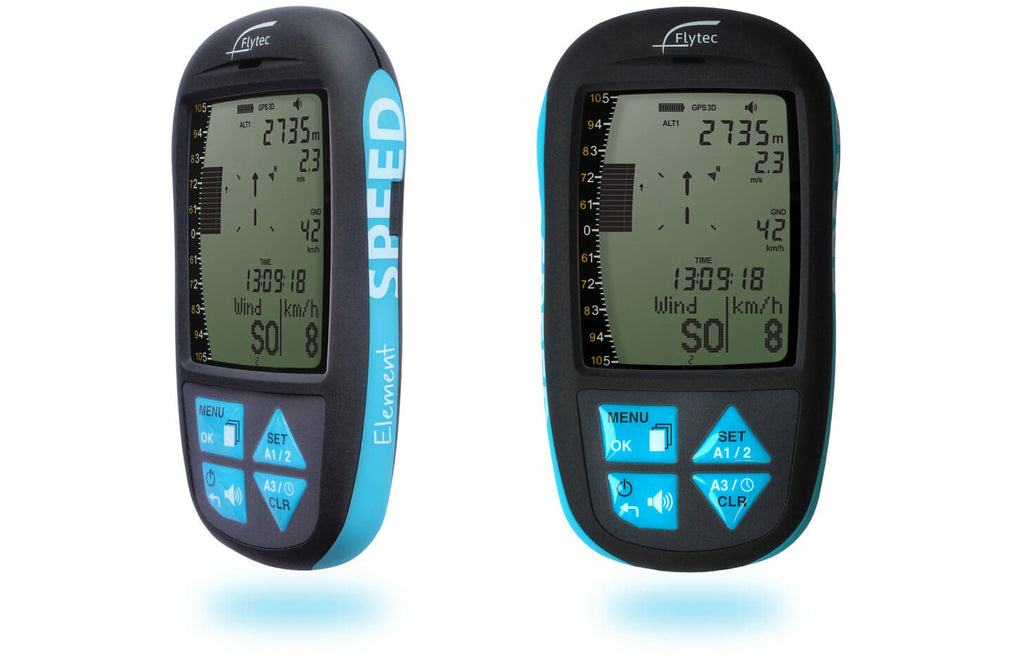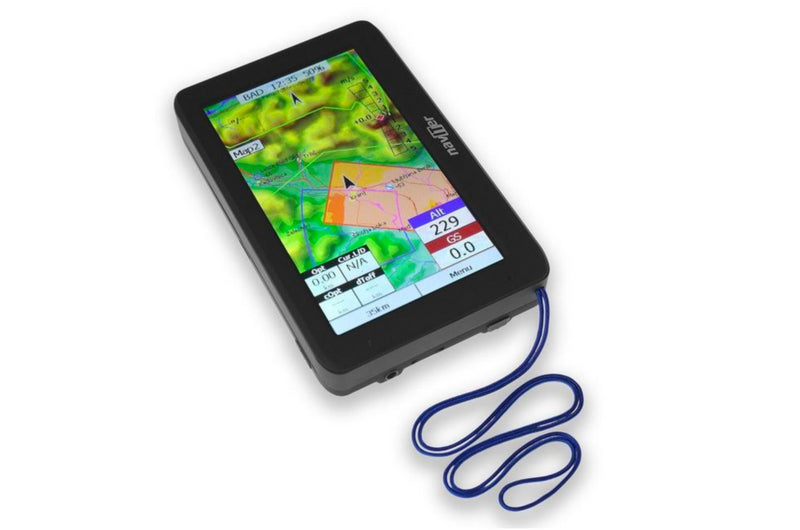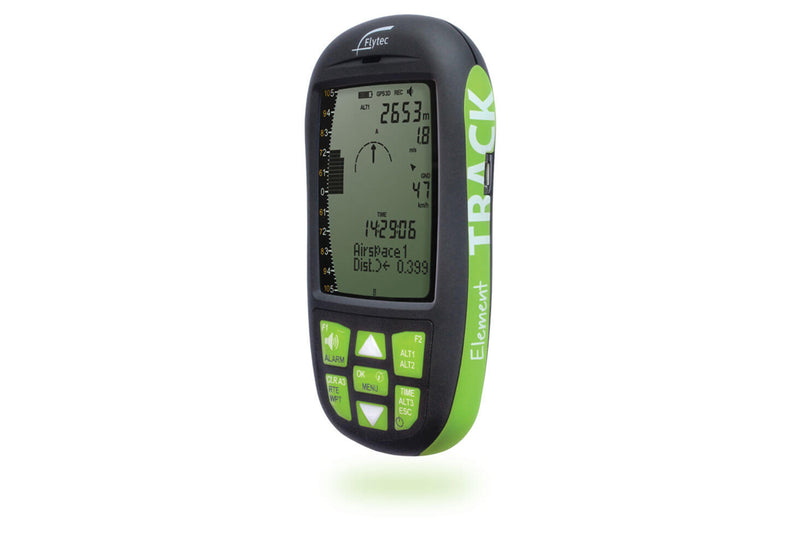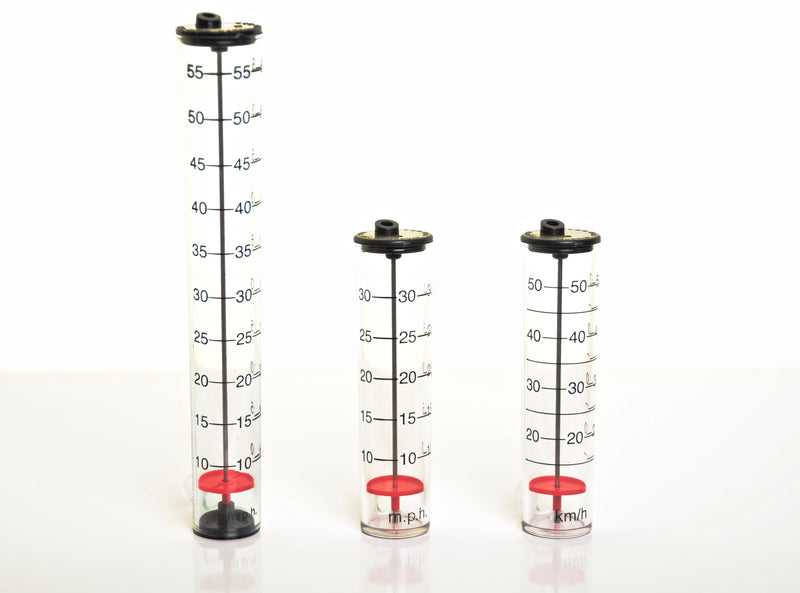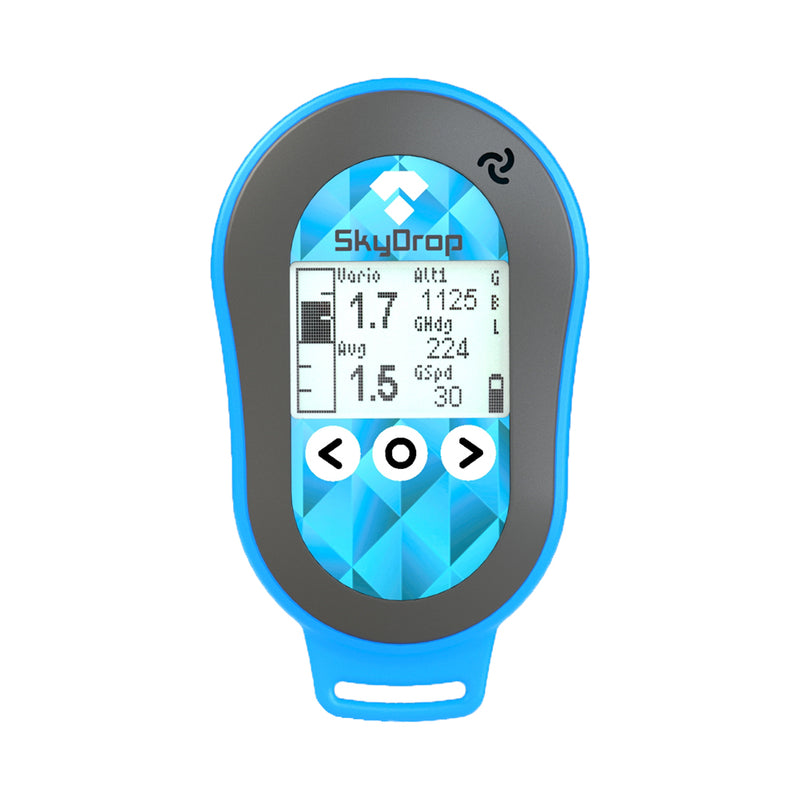Element Speed
Whether you are just starting out as a pilot, or an experienced pilot that prefers leisurely local flights, the Element Speed is the right instrument for you. To fly safely and relaxed, it is important to understand the state of the air around you. Of course climb and descent rate information is crucial but just as important is your speed over ground, glide ratio and the wind velocity. The Element Speed gives you this information precisely and at a glance.
Whether you are just starting out as a pilot, or an experienced pilot that prefers leisurely local flights, the Element Speed is the right instrument for you. To fly safely and relaxed, it is important to understand the state of the air around you. Of course climb and descent rate information is crucial but just as important is your speed over ground, glide ratio and the wind velocity. The Element Speed gives you this information precisely and at a glance.
- Altitude and Climb/Sink indication in unsurpassed Flytec quality
- Ground speed and current glide ratio
- Wind direction and speed
- Distance and direction to launch
- Distance and direction to the last thermal
- Vario profiles
Speed and glide
The first time I flew with a GPS was in 2000. Originally I’d bought it for navigation, but ultimately, the most important information delivered by the device was ground speed and glide. Suddenly I understood how I moved through the air! This helped me tremendously in my development to a cross country pilot. Even today, while free-flying, speed over ground and glide are the two values I read from my instrument most often. I can judge altitude visually, as far as necessary, climbs are indicated acoustically but to know about speed and glide, I glance at the display every so often.
Wind Information
While talking with pilots in schools, at launches or in the LZ, every now and then I hear about somebody who found themselves “suddenly” in a situation where they were no longer able to advance into the wind with their glider. This is why to me, today, accurate wind calculation has become an important safety feature, especially for pilots with minimal experience.
Vario Profiles
Only few pilots are aware that the vario in their instrument is set up wrong for the conditions they are currently flying in. In the fall or winter when thermals are weak, I want to be informed about even the smallest climb so a sensitive vario with fast reaction time is really important. In strong spring or summer conditions, this setting can be distracting or even make me nervous. In these conditions I only want to be told about the really strong climbs, to decide whether I turn in a thermal, or to continue on for something better. To make choosing the right settings as easy as possible, we have introduced preset vario profiles for weak, average and strong thermals. These profiles can be adjusted individually by the pilot if desired.
ConclusionGeneral
The Element Speed combines all this in a compact easy-to-use device, and is therefore in my opinion the perfect instrument for beginners and occasional pilots: It delivers exactly the information they need to enjoy long and safe flights. No more, no less. Happy flying!
- Robust, shockproof ABS housing, matte black with blue trim
- Tactile keypad with glove-friendly keys, high-contrast display
- Dimensions: 138 x 74 x 23 mm
- Weight: 178 g (including Batteries)
- Power supply: 2x AA batteries (Alkaline or NiMH accumulators)
- Battery life: ~35 h
- Operating temperature: 14ºF to 122ºF or -10°C to 50°C
- Languages: English, German, French Italian, Spanish
- Units: m / ft
- Resolution: 1 m or 1 ft
- Range: up to 40,354 ft or12,300 m
- QNH: air pressure indication in hPa or in Hg
- ALT 1: Absolute altitude
- ALT 2: Choice of absolute or relative altitude
- ALT 3: Altitude difference or altitude above ground (in development)
- Units: m/s or fpm
- Graphic indication: ±2000 ft/min. or ±10 m/s
- Graphic resolution: 40 ft/min. or 0.2 m/s
- Numeric indication: ±30,000 ft/min or ±300 m/s
- Numeric resolution; 10 ft/min or 0.1 m/s
- Averager: selectable from 1 s to 30 s
- Volume: 4 levels
- Vario profiles: Five predefined (weak, regular, strong, ridge soaring, balloon) - individually adjustable
- Climb tone: selectable lower threshold, frequency and cadence modulation
- Near-thermal tone: selectable lower threshold and volume adjustment
- Sink tone: selectable upper threshold and volume adjustment
- Stall alarm: selectable threshold (requires optional airspeed sensor)
- Additional vario adjustments: Base frequency, and modulation
- Requires optional sensor
- Units: kph, knots, mph
- Range: 0 to 74mph or 0 to 120 kph, resolution 1 mph, km/h, kt
- Calibration: ±50%
- Speed over ground
- Current glide ratio (L/D)
- Wind: direction graphic, and numeric direction and speed
- Last thermal: graphic and numeric direction and distance
- Units for distance: km or miles
- Units for speed: km/h, knots or mph
- Internal logbook: 50 flights
- Logbook values: date, start time, duration, max altitude, max climb and sink rate
